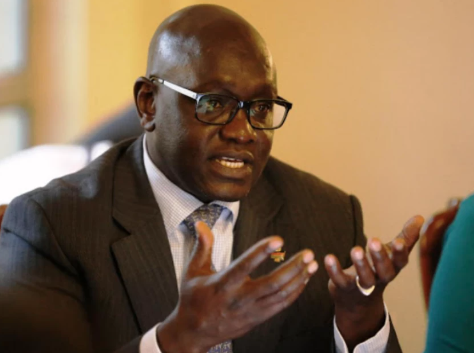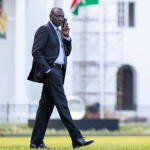Thirdway Alliance party leader Ekuru Aukot has termed Deputy President Rigathi Gachagua’s speech over the anti-Finance Bill 2024 protests as a threat to the lives of Kenyans.
This is after Gachagua on Wednesday urged Kenyan youth to cancel their planned protests to occupy State House today, Thursday 27, “so that we don’t have further loss of lives and destruction of property.”
“As Deputy president and patriotic son, I want to appeal to Gen Z to call off the protests for tomorrow because their cry has been heard by the president. He has accepted that there was a disconnect and it is only fair we call off the protests,” Gachagua added.
In Aukot’s view, the sentiments made by Gachagua pose an alarming threat to human lives, arguing that he hinted at possible police brutality if the youth take the streets.
“When I listen to Gachagua I read a threat. Why would he be insinuating that we do not want to lose more lives is it because they do not understand the constitution of Kenya that Kenyans can demonstrate peaceably,” he said.
“Police should actually give protection to that peaceful demonstration. Why is he insinuating on loss of lives? I don’t really buy into what he is saying.”
Aukot further noted that more individuals should be held responsible for those shot dead by police officers during the peaceful protests that later turned chaotic after officers started opening fire.
“Let’s see some heads rolling. Can IG Koome take responsibility for what happened or that Nairobi regional commander,” Aukot noted.
“Lives were lost, we have dead bodies. Somebody is responsible for that, who is that person because those young people were very peaceful.”
After vehement protests that happened in three days, the government finally bowed to pressure and President William Ruto announced that he would not sign the contentious Finance Bill 2024 and referred it back to Parliament for withdrawal.
“Having reflected on the continuing conversation around the content of the finance bill of 2024, I will decline to assent to the bill,” President Ruto said on Wednesday evening.
What next?
According to Article 115 of the Constitution, the president has two options 14 days after receiving the bill: sign it into law or refer it back to Parliament for amendments.
If the head of state returns the bill to Parliament, MPs must either amend it after adopting the president’s recommendations or pass it again without amendments. This should be done with a two-thirds majority in the National Assembly.
Clause 6 of the Constitution states that if the president refuses to sign the bill and fails to return it to Parliament within 14 days, the bill will be considered law.
This means that Ruto must write a letter to parliament within 14 days recommending that the bill be rejected in its entirety; otherwise, the bill will become law.



